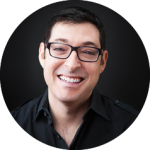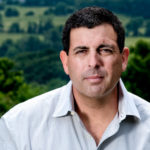Episode 40

Dr. Gabor Maté
Our guest, Dr. Gabor Maté, a renowned speaker and bestselling author, sheds light on the true nature of addiction, and why so many of us fall victim to this harsh reality.
Society has created an ideal around feeling “normal” and finding “mental sanity,” when we do not even have a clear definition of what“mental sanity” is. So many people struggle with emotional pain on a day-to-day basis. When that pain becomes overwhelming, especially from early childhood trauma and attachment injuries, it’s human nature to try and escape that pain until it gets resolved.
Gabor describes his clinical experience of helping those struggling with addiction, and how he concluded that addiction is always a strategy to escape from emotional pain, trauma, and attachments injuries during childhood. He speaks authentically and shares about his experience of addiction, while giving hope with the basic aspects that help people heal.
Episode 39

Keith Kurlander, MA, LPC
Keith Kurlander, CEO of Higher Practice, in a fierce and loving dialogue, joins his inner circle in a conversation about community, relationships, love, mental health, and spirituality. Guests include The Smart Couple Podcast Founder, Jayson Gaddis, a Boulder, Colorado Men’s Group leader, Reuvain Bacal, and a thought leader in Integrative Psychiatry, Dr. Will Van Derveer.
In this episode, Keith and his inner circle explore the values of supporting and challenging each other, how to navigate the most difficult moments in life together through personal examples, and ways in which powerful friendships lead to personal and professional growth. When those around you have visions that align with your own, it automatically sheds light on your purpose, which leads to a more fulfilled life.
Episode 38

Keith Kurlander, MA, LPC
So many people claim they want to be happy, but so few people ever attain it. Keith Kurlander, CEO of Higher Practice, explains why it’s impossible to achieve the stereotypical version of happiness and redefines it into something that’s not only achievable, but something worth fighting for.
Many people feel as though they have tried everything they can in order to maintain a happy existence, but most people report dissatisfaction on a regular basis. It is easy to feel hopeless, and as if there is no coming out of your unhappy slump when it kicks in. However, when three essential components are brought back into balance, you can feel focused and clear, and obtain experiences of happiness and joy.
In this episode, Keith goes into detail about these three components and some tools and tips to help you and your clients experience a truer sense of happiness. There is a secret to happiness, but it begins with understanding and and changing your mindset so you can live in a healthy way.
Episode 37

Keith Kurlander, MA, LPC
Keith Kurlander, CEO of Higher Practice, understands the difficulties of building a private practice from the ground up. After plenty of trial and error, he’s discovered a number of great resources to make the process as stress free as possible.
Building a private practice can be demanding. Most mental health clinicians would agree that it can consume way too much time and money. When building a practice, there are a number of great online technologies out there to manage everything yourself in a relatively short amount of time without breaking the bank.
This episode is all about doing your private practice from start to finish by yourself (DIY)He explains a more savvy method to every bump that mental health clinicians face in regards to the backend processes. Keith discusses the latest tools for bookkeeping, taking payments, note taking, building your community, website making, social media, and simplifying the mass email process.
Using these methods, the transformation of your private practice will be easier and faster than ever before.
Episode 36

Keith Kurlander, MA, LPC
Keith Kurlander, CEO of Higher Practice, explains how martial arts transformed his life and ways in which it can help certain clients attain integration. He also acknowledges why particular systems and instructors of martial arts can cause more damage than growth and what to look for when suggesting this type of intervention.
Although martial arts might seem contrary to many forms of the therapeutic process, the overall teachings within both disciplines have to do with integrating the body, mind and relationships in your life. Martial arts, like therapy, embraces teaching people the hard and soft skills to feel confident and connect with all elements that life presents to us.
Keith will shed light on the types of mental health issues that respond particularly well to martial arts, and, also the different types of systems of martial arts available. As a black belt in the To Shin Do system, which is based in the teachings of the Japanese Ninja, he shares his personal experience of how martial arts translates well beyond self-defense as a way of being integrated in the world. He explains the elemental system in this martial art, how it leads to growth and healing during each stage, and the power behind this ancient technology.
By understanding the basics elements of earth, water, wind, fire and the void, people can live more freely and feel whole. However, martial arts may not be for everybody, which it is why it’s key to only recommend it to clients with a specific purpose in mind.
Episode 35

Keith Kurlander, MA, LPC
Keith Kurlander, CEO of Higher Practice, discusses his 5 go to personal development gurus for times of stress and windows into healing and transformation. He breaks down the similarities and differences between each one, when and how they can be excellent resources for you and your clients, and top books and videos to watch if you’ve never encountered them before. Even though the personal development and self-help field are vast, it does contain a number of teachers and thought leaders that can be highly useful in your own life and in the office.
When you think about personal development and self-help gurus who come to mind? Do you think of mindfulness teachers, psychology experts, or coaches? Also, what issues do you think are valid for the self-help arena? Can mental health problems be solved there?
Keith will talk about different thought leaders who focus on personal development and how it relates to money, career, mood, presence, fear, courage, and purpose. There are gems in this field if you know where to look for yourself and your clients.
Episode 34

Keith Kurlander, MA, LPC
Keith Kurlander, CEO of Higher Practice, gives 5 steps to building an email list of over 1,000 subscribers. He covers the basics of list building techniques for practitioners who’ve never tried before, as well as more advanced techniques for seasoned bloggers and vloggers. List building is a great way to reach a wider audience of people, get your voice heard around important topics in the mental health space, and also nurture potential clients who may want to work with you.
Some clinicians shy away from collecting emails, writing blogs, sending newsletters, and getting their voice heard. The amazing thing about the online sphere is you can literally access tens of thousands of people without standing directly in front of them if you know how to. All of the wonderful skills and ideas you have about living a better life can be shared with so many people with just a little effort and the right type of focus.
Keith will discuss how to use opt-ins properly on clinician websites so they actually convert to new email leads, different types of giveaways so you have something of value to offer people who are giving you their email address, and some of the best ways to drive traffic to your landing pages and website so you can get over 1,000 subscribers in a short amount of time.
Episode 33

Ken Falke
Ken Falke, Founder of the EOD Warrior Foundation, discusses life as a Navy bomb specialist and how it led him on a path to helping veterans with psychological trauma from explosive devices. He shares his intimate understanding of what it’s like to hold one of the most dangerous jobs in the military and the therapeutic resources needed for these people.
With up to thirty-percent of veterans suffering from PTSD symptoms it’s clearly a crisis that needs to be addressed. As discussed in the episode, the military does an excellent job in training service members on active duty and how to regulate the mind and body while on the battlefield. However, where services seem to fall short is in the aftermath.
When things go “wrong” and a service member needs support for psychological trauma their options are very limited to modalities that don’t show high levels of efficacy or patient follow-through. Ken will share about another way of working with veterans who suffer from PTSD. The model he and his team developed relies heavily on coaching techniques and post-traumatic growth orientations.

















